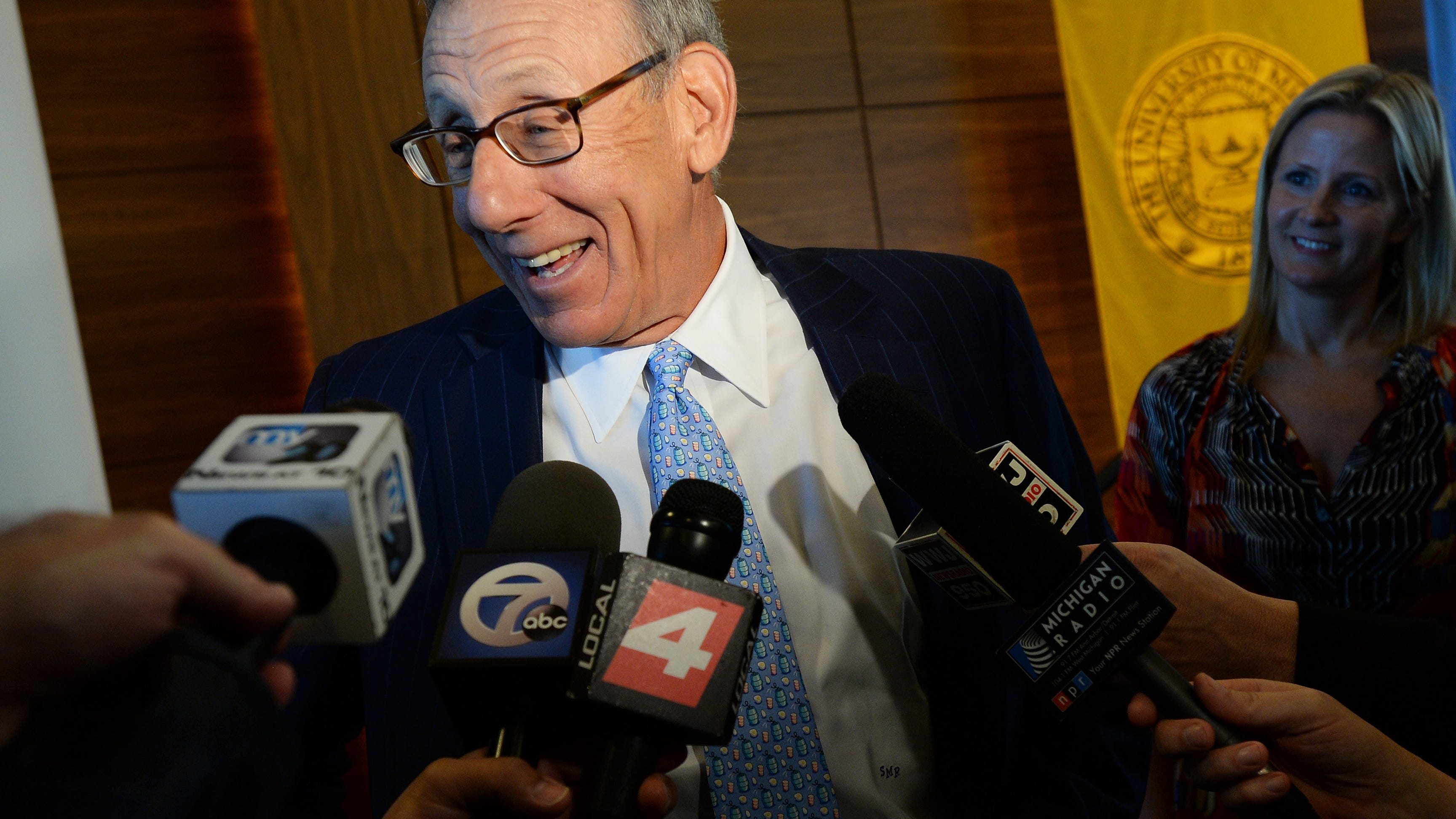Appeals court denies $33M charitable deduction by UM donor Ross, partners
 Melissa Nann Burke
Melissa Nann Burke
Washington — A federal appeals court has ruled that real estate developer Stephen M. Ross and his partners may not deduct as a charitable contribution $33 million for commercial land donated to the University of Michigan in 2003.
In so ruling, a three-judge panel of the U.S. Court of Appeals for the District of Columbia Circuit upheld a 2017 decision by the U.S. Tax Court and a 40-percent penalty imposed by the Internal Revenue Service.
Ross is UM's largest alumni donor, with hundreds of millions in pledges to the university and with his name on the university's business school.
According to the court, RERI Holdings LLC, of which Ross is a member, had acquired and donated a future interest in a piece of commercial property to UM in 2003.
RERI had argued that the donation was a bona fide deduction valued at $33 million, but the IRS had maintained that RERI artificially inflated the property value to offset the tax liability of its owners.
RERI had paid $2.95 million in 2002 for a remainder interest in the property at issue, later gifting that remainder interest to UM in 2003 as part of Ross' pledge to donate $5 million to the university.
UM later sold the property to HRK Real Estate Holdings LLC — indirectly owned by another RERI member — for $1.94 million, which was credited toward Ross’s pledge to UM, according to the court.
On its 2003 tax return, RERI claimed a charitable contribution deduction of $33 million for the transfer of the property.
After an audit, the IRS rejected $29 million of RERI’s deduction, finding the property was worth only $3.9 million. The IRS also imposed a penalty equal to 20 percent of the tax underpayment.
In the Tax Court, the IRS later asserted that RERI was entitled to no deduction for a charitable contribution on the grounds that the transaction was “a sham for tax purposes or lacks economic substance.” It also revised its penalty to 40 percent of the tax underpayment.
The Tax Court after a four-day trial sided with the IRS, concluding that RERI had failed to substantiate the value of the donated property as required by federal regulations.
The tax court judge also concluded that RERI had "grossly" misstated the property's value, which the judge found was worth just $3.46 million on the date of the donation to UM.
The Tax Court noted a “significant disparity" between the property's claimed fair market value of $33 million and the $3 million that RERI had paid to acquire it just 17 months before gifting it to the university.
"In short, we agree with the Tax Court that RERI fell short of the substantiation requirements by omitting its basis in the donated property," the appeals panel wrote.
mburke@detroitnews.com